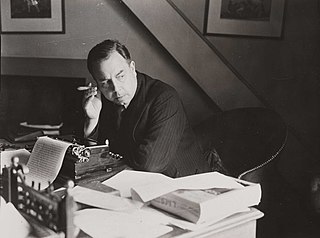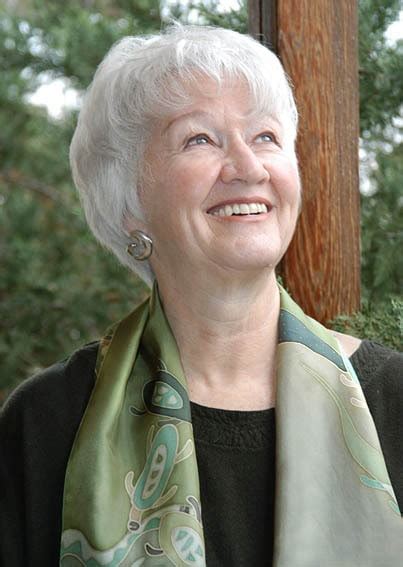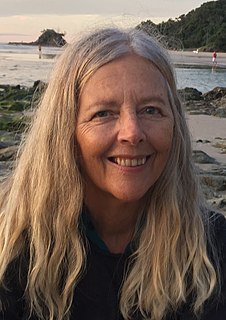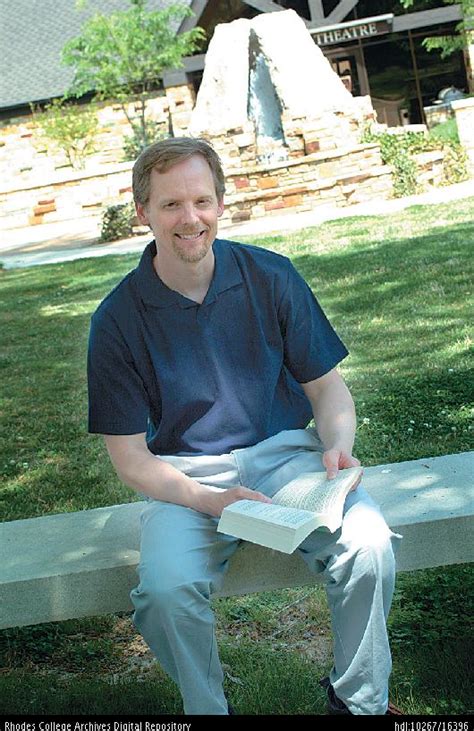A Quote by Joseph Addison
One hope no sooner dies in us but another rises up in its stead. We are apt to fancy that we shall be happy and satisfied if we possess ourselves of such and such particular enjoyments; but either by reason of their emptiness, or the natural inquietude of the mind, we have no sooner gained one point, but we extend our hopes to another. We still find new inviting scenes and landscapes lying behind those which at a distance terminated our view.
Related Quotes
we cannot break a law of eternal justice, however ignorantly, but throughout the entire universe will there be a jar of discord that will so trouble the divine harmonies that in the rebound we shall find each man his own hell! The sooner we arrive at this knowledge, the sooner we take the certainty to our souls, the sooner do our lives begin to assume the square allotted to us.
Only through art can we get outside of ourselves and know another's view of the universe which is not the same as ours and see landscapes which otherwise would remain unknown to us like the landscapes of the moon. Thanks to art, instead of seeing a single world, our own, we see it multiply until we have before us as many worlds as there are original artists.
But the point is, now, at this moment, or any moment, we're only cross-sections of our real selves. What we really are is the whole stretch of ourselves, all our time, and when we come to the end of this life, all those selves, all our time, will be us - the real you, the real me. And then perhaps we'll find ourselves in another time, which is only another kind of dream.
Sooner or later, fate puts us together with all the people, one by one, who show us what we could, and shouldn’t, let ourselves become. Sooner or later we meet the drunkard, the waster, the betrayer, the ruthless mind, and the hate-filled heart. But fate loads the dice, of course, because we usually find ourselves loving or pitying almost all of those people. And it’s impossible to despise someone you honestly pity, and to shun someone you truly love.
Is there any good reason why we cannot extend our multi-cultural generosity to include another dimension? That of time. The past, too, is another country. Its ghosts may look strange and frightening and slightly misshapen in body and mind, but all the more reason then, to welcome them to our shores.
We are more inclined to hate one another for points on which we differ, than to love one another for points on which we agree. The reason perhaps is this: when we find others that agree with us, we seldom trouble ourselves to confirm that agreement; but when we chance on those who differ from us, we are zealous both to convince and to convert them. Our pride is hurt by the failure, and disappointed pride engenders hatred.
I have gained and sustained my optimism as a humble student of our living universe, our living Earth, which clearly shows us the way out of our adolescent crisis into a mature global future. The sooner we create our vision of all we desire, set our intention to implement it together, and put our individual capacities into collective action, the greater our chances of success.
When we seek happiness through accumulation, either outside of ourselves-from other people, relationships, or material goods-or from our own self-development, we are missing the essential point. In either case we are trying to find completion. But according to Buddhism, such a strategy is doomed. Completion comes not from adding another piece to ourselves but from surrendering our ideas of perfection.
[Grace] is given not to make us something other than ourselves but to make us radically ourselves. Grace is given not to implant in us a foreign wisdom but to make us alive to the wisdom that was born with us in our mother?s womb. Grace is given not to lead us into another identity but to reconnect us to the beauty of our deepest identity. And grace is given not that we might find some exterior source of strength but that we might be established again in the deep inner security of our being and in learning to lose ourselves in love for one another to truly find ourselves.
The life of hope, then, is shot through with social influences at every level. We learn to formulate ideals in tandem with others. We pursue particular hopes, sometimes succeeding and sometimes failing, in the company of those we love. And as we develop habits of hope and the hopefulness which helps us weather our trials, we reach out to others, inspiring them, sharing our own hopes with them, and contributing our abilities as best we can to foster the growth of agency.





































